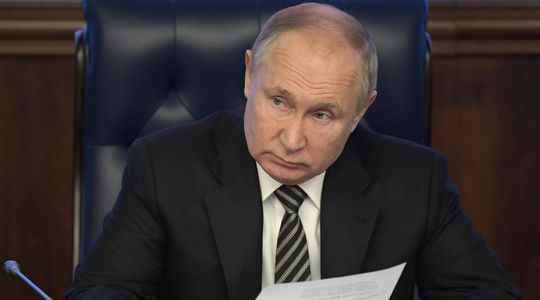If Russia decides to invade Ukraine, it will be subject to drastic economic sanctions, such as its eviction from the Swift system, the stopping of the Nordstream 2 project or the freezing of the foreign assets of the oligarchs close to power. Are these threats made by the United States and the European Union likely to make Vladimir Putin back down? In other words, are economic sanctions likely to discourage belligerent potential and avoid armed conflicts? History provides a nuanced answer to this question. Napoleon’s continental blockade against England did not prevent Waterloo. The occupation of the Ruhr by France in 1923 favored German nationalism and indirectly the arrival of Adolf Hitler in power. The trade embargo imposed on Italy in 1935 did not discourage Mussolini from conquering Abyssinia.
Yet when, in the aftermath of the First World War, the United States, France, Italy and the United Kingdom, in the “spirit of Versailles” devised the modern version of economic sanctions to prevent new conflicts armed, the idea seemed bright. The Member States of the League of Nations then undertook to sever all financial and commercial ties with a country which committed an act of aggression against another. Nicholas Mulder, professor of history at Cornell University in the United States, chooses this starting point of the 1920s in the book he devotes to the history of economic sanctions. He describes at length the difficulties encountered by diplomats and jurists in implementing this mechanism in an operational manner. And it must be recognized that their success was not total. The difficulty is to find the balance between imposing economic suffering on a country without, in turn, having harmful consequences on the person or persons imposing these sanctions. The case of Russian gas is exemplary from this point of view: preventing the start-up of Nordstream 2 certainly penalizes Gazprom, but also Germany, one of its main customers in Europe…
For Nicolas Mulder, history gives us a number of valuable lessons on the situations in which economic sanctions are effective. First, they must be sufficiently massive and punitive. A slap on the hand does nothing. Then, sanctions are just as ineffective if the possibilities of circumventing them are wide, in particular when a sufficiently powerful third country replaces the others (China and North Korea for example, or Russia and Iran.. .).
Instead of pushing illiberal nations to improve their policies, sanctions can have the opposite effect and induce their leaders to further isolate themselves.
But the most radical lesson is certainly this: the sanctions are all the more effective when the country subjected to them is weak and deprived. A large authoritarian country is always capable of minimizing the consequences, if necessary by making its own population suffer a little more. Instead of pushing non-liberal nations to improve their policies, sanctions can have the opposite effect and induce their leaders to further isolate themselves and intensify their hostility towards the liberal world. This is precisely where we are today…
“The Economic Weapon: The Rise of Sanctions as a tool of Modern War”, by Nicholas Mulder, Yale University Press, January 2022.
Rating from L’Express 4/5
